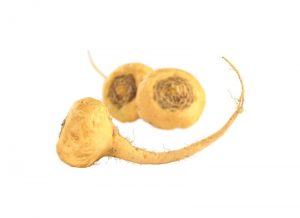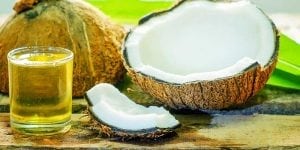Eating right, exercising and maintaining a healthy lifestyle are all important for boosting fertility. However, for those who may need a little extra help, scientific studies have shown that maca can improve fertility in men and women alike. The ancient Inca discovered this root vegetable, which grows in only one place in the world: high in the Andes Mountains. Today, maca is used worldwide for its multiple healing qualities.
Maca’s History
 People used maca even as far back as the early 1500s to support fertility. In fact, shortly after the Spanish Conquest in what is now Peru, the Spanish settlers found life in the Andes was more difficult than expected. Not only were they unhealthy, but birth rates slowed significantly due to poor nutrition and high altitude. What’s more, farmers discovered that their livestock were also suffering; they were reproducing very slowly, if at all. The natives in the area led the settlers to wild maca fields, where the livestock ate their fill regularly. Over time, the livestock became healthier and more fertile. Soon after, the Spanish settlers began to eat the maca plant, and they, too, enjoyed better health and higher birthrates than before.
People used maca even as far back as the early 1500s to support fertility. In fact, shortly after the Spanish Conquest in what is now Peru, the Spanish settlers found life in the Andes was more difficult than expected. Not only were they unhealthy, but birth rates slowed significantly due to poor nutrition and high altitude. What’s more, farmers discovered that their livestock were also suffering; they were reproducing very slowly, if at all. The natives in the area led the settlers to wild maca fields, where the livestock ate their fill regularly. Over time, the livestock became healthier and more fertile. Soon after, the Spanish settlers began to eat the maca plant, and they, too, enjoyed better health and higher birthrates than before.
Maca and Fertility: The Evidence
Researchers believe that maca is actually an adaptogen, which is a substance such as a food or an herb that adapts to conditions within the body in order to restore health. Because maca works to restore a healthy balance to the body’s endocrine system, it regulates hormonal balance, which is necessary for maintaining optimal fertility. Several scientific studies have shown that black maca, a specific variety of the vegetable, significantly boosts sperm count in bulls. A few smaller studies showed that women who supplemented with maca were better able to conceive than women who did not supplement.
Balancing Hormones
 Several hormones in the female body are essential for fertility, namely estrogen. Widely known as the “female” hormone, estrogen is necessary for proper egg development, timely menstruation, egg fertilization and even the implantation of the fertilized egg. When estrogen levels are not properly balanced, women may not be able to conceive a child. In fact, some studies even show that improper estrogen levels may be responsible for many of the miscarriages that occur prior to the end of the first trimester of pregnancy. Maca assists in balancing estrogen and other hormones in the body, thus increasing the number of mature eggs during ovulation and supporting a healthy pregnancy.
Several hormones in the female body are essential for fertility, namely estrogen. Widely known as the “female” hormone, estrogen is necessary for proper egg development, timely menstruation, egg fertilization and even the implantation of the fertilized egg. When estrogen levels are not properly balanced, women may not be able to conceive a child. In fact, some studies even show that improper estrogen levels may be responsible for many of the miscarriages that occur prior to the end of the first trimester of pregnancy. Maca assists in balancing estrogen and other hormones in the body, thus increasing the number of mature eggs during ovulation and supporting a healthy pregnancy.
Reducing Stress
Another outstanding benefit of maca is its ability to balance moods. Since maca adapts to the endocrine system, not only does it help to regulate estrogen and other hormones, but it also helps to control the release of key chemicals affecting the mood such as serotonin and dopamine. Healthy levels of these substances correlate to less stress, and this reduction in stress has a direct impact on fertility. Combining maca with meditation, yoga, or other techniques drastically improves a woman’s chances of conceiving.
Improves Libido

Is Maca Safe?
Although the FDA does not regulate maca, scientists, researchers and physicians consider it safe for consumption in its unprocessed, powdered and juiced forms. This is because people who live high in the Andes Mountains in Peru have only two large crops available to them: potatoes and maca. These people consume about a half-pound of maca daily without any reports of adverse effects. However, consumers should take care to purchase their maca supplements only from trusted retailers to ensure its quality and purity.
While maca may support healthy egg development, fertility and pregnancy, it is not a substitute for the advice of a physician. Women who are dealing with infertility should speak to their physicians and follow medical advice. What’s more, it is important for women who are trying to conceive to discuss all of the supplements they take with their physicians.





